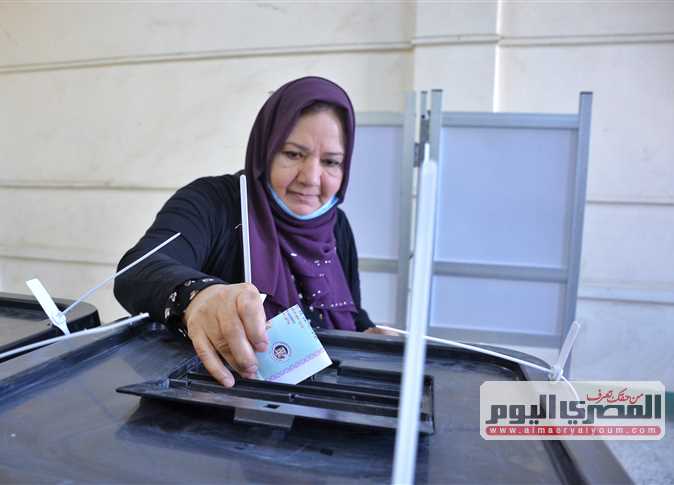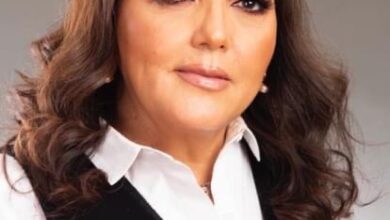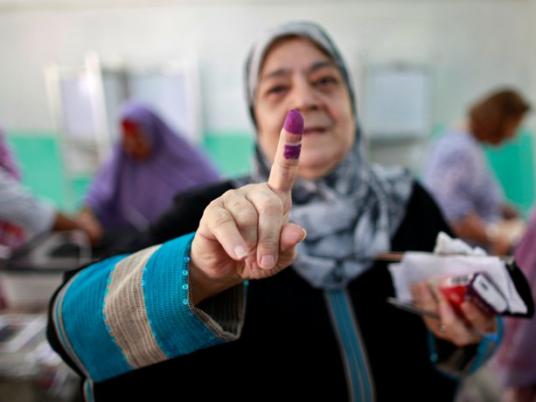Last month, Mohamed Selim al-Awa, a moderate 69-year-old Islamist intellectual, announced the temporary suspension of his presidential campaign to protest the slow transition timetable set by the Supreme Council of the Armed Forces (SCAF). Awa, who is widely viewed as one of the more progressive Islamists in Egypt right now, warns that this slowness threatens to derail Egypt’s revolution. And he says he is ready to take to the streets again if power is not handed over to civilians soon.
But Awa is also not especially critical of the military. He doesn’t believe, for instance, that the SCAF is engaging in an all-out power grab comparable to the 1952 Free Officers coup. For now, Awa says, it is important to focus on the upcoming parliamentary elections.
Al-Masry Al-Youm recently sat down with Awa to discuss his views regarding Egypt as an Islamic state and the transitional period. What follows is an edited and abridged version of the interview.
Al-Masry Al-Youm: What is your presidential campaign about?
Mohamed Selim al-Awa: The individual, who has been ignored for at least 30 years! My main objective is to let every citizen discover his or her own value, power, points of weakness. We plan to do this by educating people and improving their living conditions, which are terrible. If we don’t do that then there won’t be any success in any program.
Our second main concern is establishing the rule of law, which means equality in its application and justice for everyone, which can't be attained without the independence of the judiciary.
Of course we have an economic and social program as well, but our main concern is the human being.
Al-Masry: Will you implement Sharia [Islamic law]?
Awa: Sharia is already implemented in Egypt. It does not need more implementation. Except the verse and prophetic sayings related to crimes and punishments; this needs clarification by the people and to be reflected in law. By the way, it is not the president who implements law. It is the parliament and the judiciary. If the parliament passes a law which is in accordance with Sharia, the judiciary cannot reject it. This is not the president’s business.
Al-Masry: There is a growing fear, not just in Egypt, that conservative Islamic thinking will take over politics and Arab countries will not operate democratically. What are your thoughts?
Awa: What is wrong with strong Islamic feelings, positions and decisions? Why are we not similarly afraid of the strong American or Israeli positions? They are all run by very strong rulers who are supported by their parliaments and nobody objects. And if anyone objects, I would tell him that it is none of his business. Let elections take place, let people choose.
Al-Masry: Do you think religion could be the basis of a constitution in Egypt?
Awa: The question is wrong in itself. Religion cannot be the basis for a constitution. The constitution is an agreement between the political powers and the people of a country to run the country according to specific rules. These specific rules can be taken from anywhere, provided that people accept them. If people want constitutional rules taken from Sharia or France, then that is their business.
These questions are referring to Islam as something different, fearful and something that people should be curious and cautious about. I disagree on this attitude toward Islam. Islam is a way of life, as is Christianity and Judaism. Why isn’t anybody objecting to the democratic Christian parties in Europe? Yet everyone objects to the Islamic political parties. We are an Islamic world and we have to have Islamist parties. What’s the problem with that?
Al-Masry: Many Christians criticize you and say you claim to sympathize with them just because you are running for president. And they say, “How can we trust someone who said that we have weapons in our churches?” What do think of that?
Awa: I didn’t say they have weapons in their churches. I was speaking in an interview with Al Jazeera about a specific incident. The public prosecution office investigated this case and the two who are accused are still under arrest. I was asked about this specific case and I answered. My words were rephrased. I was asked about weapons in churches. I said churches must be inspected, just as mosques are inspected. And I was asked, “If there are weapons in the churches against whom would they be used? I said certainly not against Israel, they would be used against Muslims.”
Secondly, I cannot seriously claim that I am not seeking Christian votes. I am looking for the vote of every sincere Egyptian. But I am not making my political decisions for votes. Otherwise, I would have done hundreds of other politically popular things to satisfy people.
Al-Masry: Why isn’t there in place yet a unified law on houses of worship?
Awa: This law had been studied for five years and I have no idea why the previous parliament and government did not enact it. The problem in this law is on how to address already existing illegal places of worship. We have to treat every case on its own merits. We shouldn’t make a law making every illegal house of worship legal. This is against Christians as it is against Muslims, as it contradicts the law of the land.
Al-Masry: What do you think of the SCAF’s performance during the transitional period?
Awa: They are doing the best they can, but the problem is their governing capabilities! They are not politicians. They don’t have expertise in dealing with non-military civilians. And they are quite unaware of the real political and social problems of Egypt.
Al-Masry: Do you think the SCAF has contributed to disrupting the political and social scene and creating sectarian violence in Egypt?
Awa: The SCAF does not contribute to that, but their rule of the country should come to an end as soon as possible, through parliamentary and presidential elections.
Al-Masry: Why is the SCAF being stubborn about keeping single winner districts in the parliamentary elections, while most political parties and politicians don’t want them?
Awa: The reason behind that is the constitutional court, not the SCAF. The constitutional court said that if the elections don’t have a mixture between individual candidate and party list-based seats, the parliament will be considered unconstitutional. The SCAF is following legal advice from the constitutional court, which is based on the old, now dissolved constitution. But we are fed up with this dialogue. We want the elections tomorrow, anyway. Let’s move from ruling by the military to ruling by the elected people.
Al-Masry: Do you think that the military will be politically involved after the transfer of power?
Awa: I don’t know but it shouldn’t be. I will fight against any involvement of the military in political life.
Al-Masry: What are your fears for Egypt?
Awa: Chaos, which we saw recently at Maspero. It was certainly intended and planned. I said there was a third party involved and I knew who they were, but I kept silent. Their identities are now published in the newspapers. Political powers and businessmen were involved in planning that a long time ago.
Al-Masry: What is your hope for Egypt?
Awa: To see Egypt a real democratic and free country that makes use of its vast resources.




